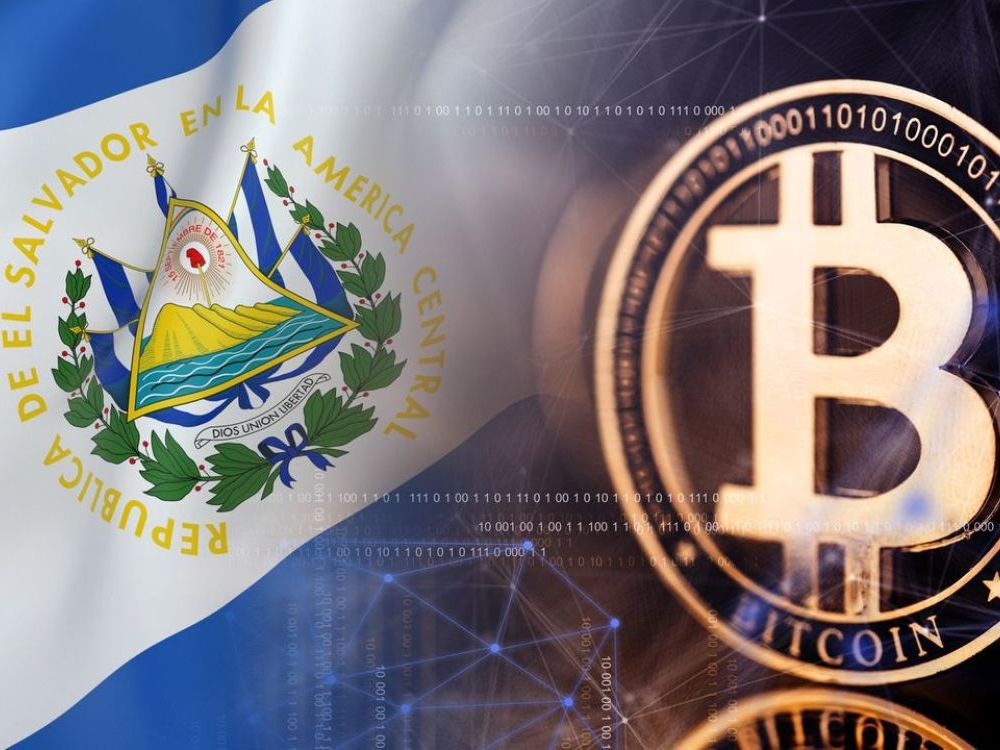We recommend the best products through our internal review process and may receive compensation if you visit partners we recommend according to our advertising disclaimer.
Bitcoin, a popular cryptocurrency, has gained some traction internationally, as more and more countries embrace Bitcoin in their economy. The development of Bitcoin and other cryptocurrencies could have worldwide benefits. Countries are welcoming and adopting crypto. El Salvador took a step further by being the first country to make Bitcoin a legal tender.
In 2001, El Salvador made the U.S. dollar an official currency, and now, they have added Bitcoin. Even in El Salvador, becoming legal tender is a significant accomplishment for digital currency. It is also the most significant advancement in the regulation of crypto.
The Bitcoin Law was passed and spearheaded by President Nayib Bukele on June 5, 2021, and took effect on September 7. The policy, which was tagged as historic by Bukele, proposes that El Salvador recognizes Bitcoin as legal tender meaning every business is required to accept Bitcoin as a means of payment for services rendered or goods obtained. Debt settlements, including those made by Salvadorian merchants, must also comply with the new rules regarding legal tender transactions.

President Nayib Bukele suggests that adopting Bitcoin as legal tender will benefit the Salvadorian economy by …
- spurring of investments in the country.
- helping Salvadorians with no access to banking services.
- making it easier for Salvadorians to transfer money into the county.
- ultimately boosting the economy of the country.
The Pros and Cons of Bitcoin as a Legal Tender
Currently, El Salvador’s treasury has about 1,120 bitcoin worth nearly $66 million. The implications of this new policy will be both negative and positive.
1. Investment opportunities for the country
Legalizing Bitcoin increases investment incentives to attract investors. Geothermal energy generated from the volcanoes in El Salvador may lead to a more energy-efficient way of mining cryptocurrency.

2. Financial inclusion
About 70% of Salvadorians lack essential financial (banking) services. Adopting Bitcoin will make it easier to transfer money within El Salvador and across international borders. Because Bitcoin does not involve any intermediaries and has no borders, people can trade around the globe. A person just needs a Bitcoin wallet to send and receive payments using this cryptocurrency.
3. It will affect international trade
Neighboring countries, Panama, Mexico, and Guatemala, have shown interest in adopting crypto as currency. Trading with these countries might become more accessible.
However, The United States of America is El Salvador’s biggest trading partner. The fact that the U.S. dollar has been El Salvador’s sole currency since 2001 has been beneficial in easing trade between these two nations. At this stage, it seems highly unlikely that the U.S. will adapt to El Salvador’s Bitcoin policy and accept it as legal tender in future trade negotiations.
El Salvador also has a strong trading relationship with China as an importer of many Chinese goods. The use of Bitcoin as legal tender may not be acceptable in trading with China. The country may need to use the US dollar when dealing with Asian countries.
Bitcoin as a Legal Tender in Third-World Countries
Guy Gotslak, co-founder and president of My Digital Money, believes that adopting an alternative currency will be very good for the world. Although there are several risks, many consider Bitcoin to be an excellent development tool and a means to support third-world economic growth.
Bitcoin boosts financial inclusion and improves fund traceability, which helps people in developing nations escape poverty. Cryptocurrency does not require a relationship with a traditional bank or financial institution. Accessing the internet and Bitcoin can be done through a smartphone making monetary transactions possible for those living below their country’s poverty line.

It is possible that Bitcoin becoming a legal tender will significantly benefit the younger generation. They can purchase Bitcoin and hold the tokens as long-term investments. They can also collaborate with other individuals and groups to exchange ideas and other technological information.
Conclusion
Regardless of other territories following suit in the future, this move brings an excellent opportunity to test Bitcoin’s practical qualities on the sociopolitical, economic, and cultural levels. As expected, El Salvador will resist the concerns of other countries. There seems to be more to come in Bitcoin’s future, and the world will just have to wait and see.
If you want to learn more about cryptocurrencies, download the 2021 Cryptocurrency Investment For Free: https://bit.ly/3yzMetg
Follow us on Twitter: https://www.twitter.com/


